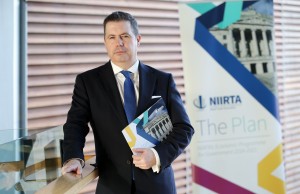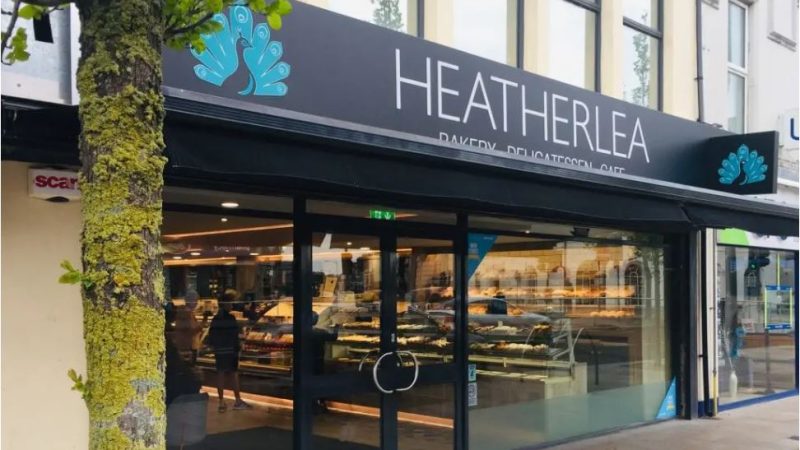Budget stirs mixed reaction from business

Chancellor Philip Hammond’s first of two Budgets in 2017 has elicited a mixed reaction from the business community, despite rates reductions and cuts to corporation tax.
Revealing the contents of the famous red briefcase on Wednesday, Chancellor Hammond outlined a cap on business rates for small businesses losing rate relief, with rises limited to no more than £50 a month.
Pubs will get a £1,000 discount on rates less than £100,000 rateable value, while local authorities will get a £300m fund for discretionary relief.
This amounts to a £435m cut in business rates.
Some of that will be clawed back, however, from the self-employed who will see their national insurance contributions rise to 10% in 2018, and 11% in 2019.
Corporation Tax, meanwhile, will fall to 19% in 2018, the lowest rate in the G20. In 2020 it will be further cut to 17%.
The budget also included a freeze in fuel duty.
There was good news for Northern Ireland too, with the Chancellor outlining an extra £115 million in the block grant.
Chief executive of the Northern Ireland Independent Retail Trade Association, Glyn Roberts, welcomed the extra money for NI, but noted that the region would be particularly hit by the increase in contributions from the self-employed.
“Given that 99% of all business in Northern Ireland is small, increasing national insurance payments for many self-employed people is a retrograde step and will increase the tax burden for many local entrepreneurs,” he said.
He also said new measures delaying quarterly reporting for businesses below the VAT registration threshold had been set “far too low at £83,000 turnover”.

“This is irrelevant to many of our members,” he said. “Retailers to be given more time to adapt their software and in-store procedures to comply with the regulations, and sadly only the very smallest businesses will be given this additional time. Further support is needed from the government to support the smallest retailers to comply with the regulations.”
Mr Roberts also said a reduction in tax allowance for dividend payments to owner-directors of small businesses unfairly affected retailers.
“Having been encouraged to become limited companies, the rules are again being changed so that these small business owners have to pay more tax on their often small profits,” he said. “NIIRTA members work among the longest hours of any sector in the economy, and the further tax burden on these businesses is unfair.”
CBI director-general Carolyn Fairbairn had praise for the Chancellor for measures on skills, but shared concern over rising inflation.
“With inflation rising and the cumulative burden weighing on businesses’ shoulders, limited relief for firms hit hard by business rates falls short,” she said.

CBI Northern Ireland Director, Angela McGowan, meanwhile, said the budget did little to comfort businesses facing an uncertain future.
“Given the clear economic challenges, it was a little surprising that this budget gave very little relief to the business community at such a critical time,” she said.
Parcel broker Parcelhero, said the measures on business rates had not gone far enough, describing them as “the final nail in the coffin for the high street”.
“It has not done enough to remove the threat to high street retailers already battling the rise of e-commerce,” said the company’s head of consumer research, David Jinks.
“The planned changes to Business Rates threaten many high street retailers with significant rate rises just as they are battling to take on online retailers.
“The cap of £50 per month for this year for businesses coming out of Small Business Rate Relief is welcome; but what happens to those businesses in two year’s time?”
CEO of Epos Now Jacyn Heavens welcomed many of the measures and described the budget as “further evidence that small businesses remain the lifeblood of the UK economy”.
“For many businesses, the three stages of tax relief outlined by Philip Hammond will act as lifeline for many and the discount on bill rates for 90% of UK pubs is essential to safeguard the future of pubs across the country.
“While these measures will provide some relief to the small business community, it is important that the government continues to focus on these businesses in favour of large corporations.”
Consultants PwC, however, said the budget had “relatively little good news” for business.
“The measures we did see focused mainly on extracting tax from business owners and the self-employed, with nearly £5 billion coming from this direction,” said Alex Henderson, tax partner at PwC.
“Moves to develop skills and support future industries, while a positive sign, are a longer-term play and won’t help businesses now.
“This Budget follows a tradition of post financial crisis Budgets, with relatively little good news.”







